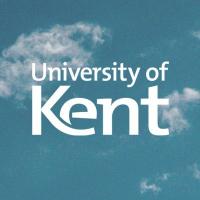Actuarial Science - PhD
Qualifying as an actuary is a passport to a wide variety of careers in insurance companies, investments, pensions, health care and banking – not just in the UK, but throughout the world. Kent is one of a very few universities in the UK to teach the subject.
Overview
The PhD in Actuarial Science offers the opportunity to begin or consolidate your research career under the guidance of internationally renowned researchers and professionals in the School of Mathematics, Statistics and Actuarial Science (SMSAS).
This research programme, which can be taken three to four years full-time or five to six years part-time, offers the opportunity to work in highly topical areas such financial modelling and estimation, quantification of diversification benefits, quantifying financial risks, and derivatives pricing. Applications for PhD research in these and other areas will be welcomed.
There's an active seminar programme involving a wide range of speakers and members of the PhD community regularly attend/present their work at leading conferences and institutes.
Before applying for this course, it is strongly recommended that you contact the School of Mathematics, Statistics and Actuarial Science in the first instance to discuss your study plans with the programme director.
Campus Information
Canterbury
Our campus is surrounded by beautiful woodlands and overlooks the charming city of Canterbury. We have excellent transport links on campus or you can stroll into town on foot.
Intakes
- Jan
- May
- Sep
Application Processing Time in Days: 30
Minimum English Language Requirements
| English Level Description | IELTS (1.0 -9.0) | TOEFL IBT (0-120) | TOEFL CBT (0-300) | PTE (10-90) | |
|---|---|---|---|---|---|
| Expert | 9 | 120 | 297-300 | 86-90 | |
| Very Good | 8.5 | 115-119 | 280-293 | 83-86 | |
| Very Good | 8 | 110-114 | 270-280 | 79-83 | |
| Good | 7.5 | 102-109 | 253-267 | 73-79 | |
| Good | 7 | 94-101 | 240-253 | 65-73 | |
| Competent | 6.5 | 79-93 | 213-233 | 58-65 | |
| Competent | 6 | 60-78 | 170-210 | 50-58 | |
| Modest | 5.5 | 46-59 | 133-210 | 43-50 | |
| Modest | 5 | 35-45 | 107-133 | 36-43 | |
| Limited | 4 | 32-34 | 97-103 | 30-36 | |
| Extremely Limited | < 4 | < 31 | < 93 | < 30 |
Job Opportunity Potential
In these appointments, you will have up to 45 minutes to talk to a careers adviser about whatever career-related topic is important to you. Topics of conversation could include:
- I have no idea what I want to do after I graduate, what are my options?
- What jobs can I get with my degree?
- How do my skills fit in the labour market?
- I’m interested in taking a gap year after I graduate and I want to plan something employers will value.
- I’m thinking of leaving/changing my course and want to talk through the pros and cons.
- I’m interested in doing a masters or PhD, what are my options?
- I’m not sure how to disclose sensitive information to an employer.
A guidance interview is:
Impartial
A careers adviser will not recommend one route to you over another. They are there to help you explore the options objectively.
Challenging
Careers advisers may question your goals and help you to look at the disadvantages as well as the advantages. This is not to put you off, but to help ensure you have thought it through.
Supportive
The meetings are very informal and relaxed. Careers advisers are there to help you discuss things in a safe environment.
Part of a process
Career choice is a process not an event. A guidance interview is a good starting point but you will need to do further research and continuously update your action plan.
PSW Opportunity
2 Years PSW is applicable after the course. (Bachelors & Masters only)
Admission Requirement / Eligibility Criteria
For entry to a Kent postgraduate degree programme (Master’s), Indian students typically need to have completed a three or four-year undergraduate degree (Honours Bachelor degree or Professional degree) at an accredited university or college. General Bachelor degrees may sometimes be considered. Exact requirements will depend on the postgraduate degree you are applying for and the institution you have studied at.
For programmes that require a 2:1 we usually ask for a First Class degree, a final CGPA of 6.0/10, or 60%. Students from top institutions may be considered with a high Second Class degree, a final CGPA of 5.5/10, or 55%.
For programmes that require a 2:2 we usually ask for a high Second Class degree, a final CGPA of 5.5/10, or 55%
Some, but not all, postgraduate programmes require your undergraduate degree to have a related major. Some postgraduate programmes may require work experience in a relevant field or at a certain level.
General postgraduate programmes
IELTS (including IELTS Indicator)
6.0 overall (with a minimum of 5.5 in R&W; 5.5 in S&L)
PTE Academic
62 overall with 60 in each subtest
CAE/CPE
176 overall (with a minimum of 169 in R&W; 162 in S&L)
TOEFL iBT
90 overall (with a minimum of 22 in R; 21 in W; 17 in L; 20 in S)
- Course Type: Full Time
- Course Level: Doctoral Degree/PhD
- Duration: 04 Year
-
Total Tuition Fee:
69600 GBP
Annual Cost of Living: 9207 GBP
Application Fee: 50 GBP

